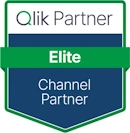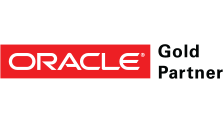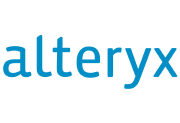#DataLiteracy – Data Literacy 2.0
Explained by Matt Parker
In 2019 I controversially declared that talking about biases and assumptions were the ‘fun bits’ of data literacy, the metaphorical froth that pseudo-experts dwell on to enrapture an audience. When in reality the full scope of data literacy requires more digging to be discovered. Unfortunately, new data literacy speakers continue to bamboozle audiences by limiting data literacy discussions to trendy bias-related topics.
Excitingly, Qlik has created Qlik Data Literacy 2.0, a new and improved data literacy program that appears to dive deeply into the topic. The new program includes:
- Launch services
- Expert training
- Skills tracking
- Community portal
- Self-service courses
- Free ‘Data Fundamentals’ courses
- Paid for ‘Data Fluency’ courses
In this article, I shall explain the seven new offerings, and why they matter.
Launch services
“Providing best practice and hands-on support for companies, including a proven methodology for starting and scaling data literacy across the business.”
Straight out of the gate, Qlik has addressed the biggest hole in the original data literacy program: “How do we apply all this?” A best practice methodology is exactly what companies interested in data literacy have been yearning for. A massive tick in the box.
Expert training
“Instructor-led classes for in-depth discussions on working with data.”
The keynote speaker for QlikWorld 2021 was none other than Malcolm Gladwell. In his speech, he went into detail about how the quality of in-class discussions was a key indicator for learning.
A complaint of the original course was that the material was too broad: “How does it apply to us?” The fact is, the material itself has to be broad, as everyone has different reasons for using data to ask questions and make decisions. Expert training with discussions allows you to get specific and to make data literacy work for you.
Skills tracking
“Data literacy assessments, certifications, and dashboards to measure progress. Employees can take a 2.5-hour exam to achieve gold standard accreditation in data literacy.”
Having an accreditation is a good piece of motivation and social signalling for ‘buying in’ to data literacy. The downside to an online exam is that it will not tell you how hard someone has studied. In fact for an online test, with Google at the ready, it’s impossible to tell. This is why the dashboards, the smaller tests, and the progress measurements through the program are even more important. Being able to check that an hour a week dedicated to data literacy learning has been well spent is imperative.
Community portal
“An online forum to fuel peer-to-peer data literacy collaboration across the organization.” Ground-breaking?
No, definitely not. Important? Absolutely.
Data literacy might as well be a philosophy course, without the vital ingredient: context. Being able to hear how other companies are applying Qlik’s data literacy lessons will give your team the inspiration and momentum it needs to clock up data literacy wins.
Self-service courses
“Over 20 online self-service data literacy courses and supporting resources for employees to upskill in their own time, split across two components…”
We do not live in an ideal world, sending every employee on a week-long data literacy course is incredibly impractical, and ineffective for long term learning. A self-service course will allow your employees to learn when they have a window. My suggestion here would be for work ‘study groups’ to be structured. That way groups of employees can learn the content in their own time, and then discuss and apply their learning during an online lunchtime meet up.
Free ‘Data Fundamentals’ courses
“…for those who are at the start of their data literacy journey including modules on Introduction to Data Literacy and Data-Informed Decision Making.”
The more sceptical amongst you might be thinking that Qlik has to offer some courses for free to honour their promised ‘data literate world’. The fact is, the Introduction course is user-friendly, and the Data-Informed Decision Making course will give the uninitiated a powerful new mindset, while still teaching veterans a thing or two.
Paid for ‘Data Fluency’ courses
“…for individuals looking to dig deeper into data best practices for their organization with modules such as Foundational Analytics and Advanced Analytics.”
When I took Qlik’s analytics courses, I found that there was a lot of overlap with the data literacy courses, except the analytics were more practical. I am intrigued to see how these courses have been expanded upon.
Conclusion
Out of the seven, the first two offerings have caught my attention. Including launch services and expert training is a huge step up from the original program. With these new offerings, my hope is that data literacy will stop being a vague aspiration for businesses and instead be a practical, actionable roadmap.






